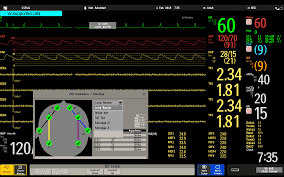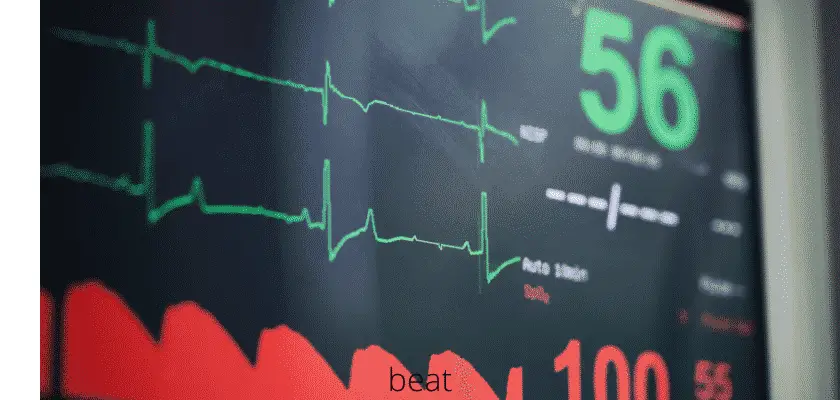Covid-19 and Heart Disease
Coronaviruses are common pathogens. However, at the end of 2019, a strain of the coronavirus was found to be infecting people in Wuhan. This virus was causing a severe form of pneumonia in people, In fact, people were dying from this pneumonia. In this article, I will be discussing COVID-19 and heart arrhythmias.
COVID-19 and Heart Arrhythmias
Because the virus was discovered at the end of 2019, the virus was named COVID-19.
COVID-19 is a novel virus, therefore; there is limited information available. The information from the Centers for Disease Control is fluid by the hour.
Although we only have 2.5 months of data, a certain trend is developing. People diagnosed with COVID-19 are having heart problems. The most concerning art are that people who did not previously have heart disease are having problems.
Who Is At Risk for Heart Arrhythmias Diagnosed With COVID-19
The prevalence of heart arrhythmias in people with COVID varies from population to population. The first arrhythmias were seen in patients in China.
In one Province in Hubei, palpitations was one of the first symptoms of COVID infection.
In one study in Wuhan, there were 138 patients hospitalized with COVID-19. Of this group, 17% arrhythmias was reported.
Although the specific reason for these arrhythmias was not identified. However, we know that electrolytes disturbances have been noted in the acute phase of COVID-19 infection. Hypoxia will also cause arrhythmias. Hypoxia is one of the first symptoms of COVID infection.
The exact mechanism of why COVID affects the heart is not known.
Heart and COVID 19-Sign and Symptoms
The most frequent serious infection is pneumonia in COVID patients. However, these patients present with a distinct type of “image” on their Xray. The image usually looks like “ground glass” in the lungs.
The symptoms that accompany the pneumonia is:
- Cough
- Shortness of breath
- Fever
- Bilateral infiltrates on the chest xray
The Most Common Signs and Symptoms
The most common signs and symptoms that patient present with are:
- 99% have a fever
- 70 % have fatigue
- 59% have dry cough
- 40% have no appetite
- 35% have muscle aches
- 31% have shortness of breath
Patients At Risk for Arrhythmias
There are some conditions that predispose a patient to having arrhythmia. These conditions include:
- Patients who have myocarditis or heart muscle damage
- Patients who have sepsis or cardiogenic shock
- Electrolyte imbalances
- Patients who present with QT prolongation
- Patients with a fever
These are all conditions that are risk factors for arrhythmias. Then if a person with these conditions also has a COVID infection, the picture is now very complicated.
Tests to Detect Heart Problems
EKG
Every patent with suspected or actual COVID should have baseline EKG. An EKG is a simple noninvasive procedure that can give you a quick overview of your heart’s rhythm. An EKG can tell you if you are immediate;y if you are having any type of arrhythmia.
Remember, when someone is caring for a patient who has COVID or they are suspected of COVID, you want to minimize the exposure. Therefore it may be easier to do a single-lead EKG instead of a 12 lead EKG.
Continuous EKG Monitoring
Many hospitals are using continuous EKG monitoring when patients are COVID positive. Continuous EKG monitoring is what you see in the ICU or critical care areas.
These continuing monitoring EKG are also able to take the blood pressure and oxygen saturations continuously. This is ideal because you want to limit the exposure to health care professionals.

Transthoracic Echo
Heart conditions like myocarditis or endocarditis can easily be diagnosed with with an ECHO. Transesophageal echocardiography (TEE) is a test that produces pictures of your heart. TEE uses high-frequency sound waves (ultrasound) to make detailed pictures of your heart and the arteries that lead to and from it.
What Arrhythmia Are Diagnosed With COVID-19?
Arrhythmia are diagnose withe EKG’s and continuous monitoring.
The most common type of arrythmia in COVID is tachycardia. Sinus tachycardia is often seen in dehydration and fever.
Other serious arrhythmia include atrial fib. atrial flutter, and ventricular tachycardia.
An EKG will tell you the difference between regular and irregular tachycardia’s.
Low heart rates such as bradycardia, blocks, and slow escape rhythms have not been seen in COVID-19 patients.
The management of people presenting with arrhythmia symptoms in the presence of COVID is no different than the routine management of arrhythmias.
Prognosis
The mortality rates increase significantly with age. The mortality rates are as high as 15% for people over the age of 80.
Under lying medical conditions significantly impacts COVID-19 morbidity and mortality. Patients with heart disease and high blood pressure appear to have the highest rates of mortality.
The reason for these high mortality rates is not known. More research is needed.
References:
My name is Phyllis Robinson MSN, RN. I have been a Registered Nurse for 27 years in the Cardiac Intensive Care Unit. I am passionate about cardiac care and heart disease. I also want this blog to be an educational tool that people can refer to for traditional and alternative treatment. I will blog on heart disorders such as high blood pressure, congestive heart failure, cardiomyopathy, and high cholesterol.
I received my Nursing degree from Baltimore Community College.
I went on to receive my Masters in Nursing from Walden University
I have worked for almost 30 years in Critical Care with a focus on heart health. I am an advocate of preventive healthcare.

